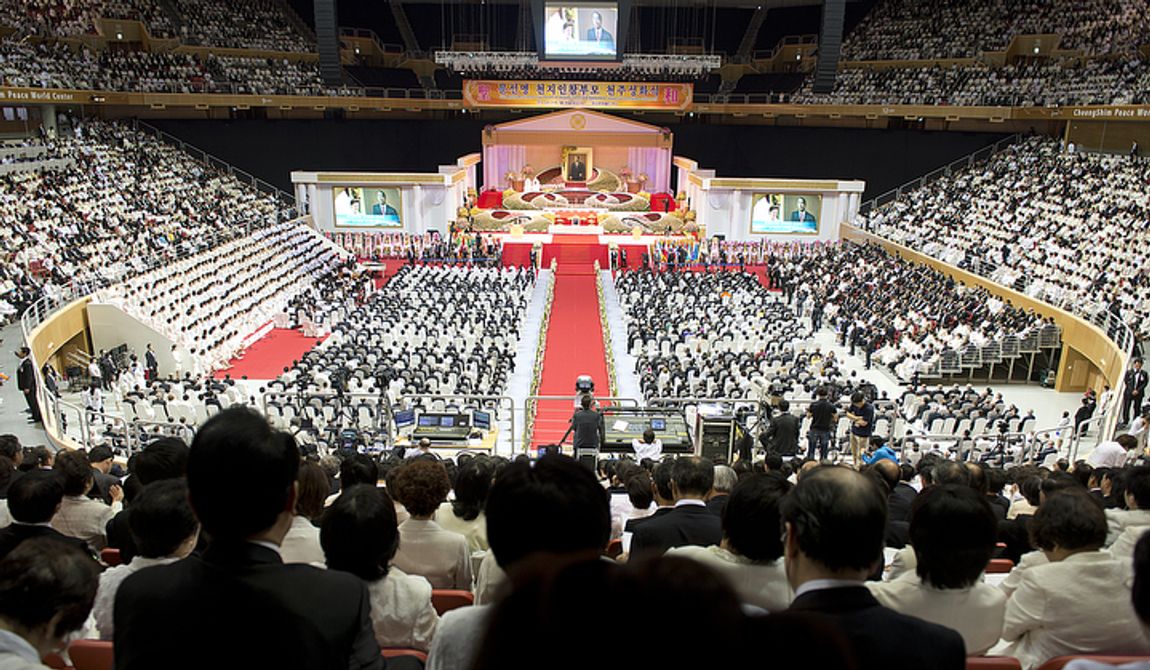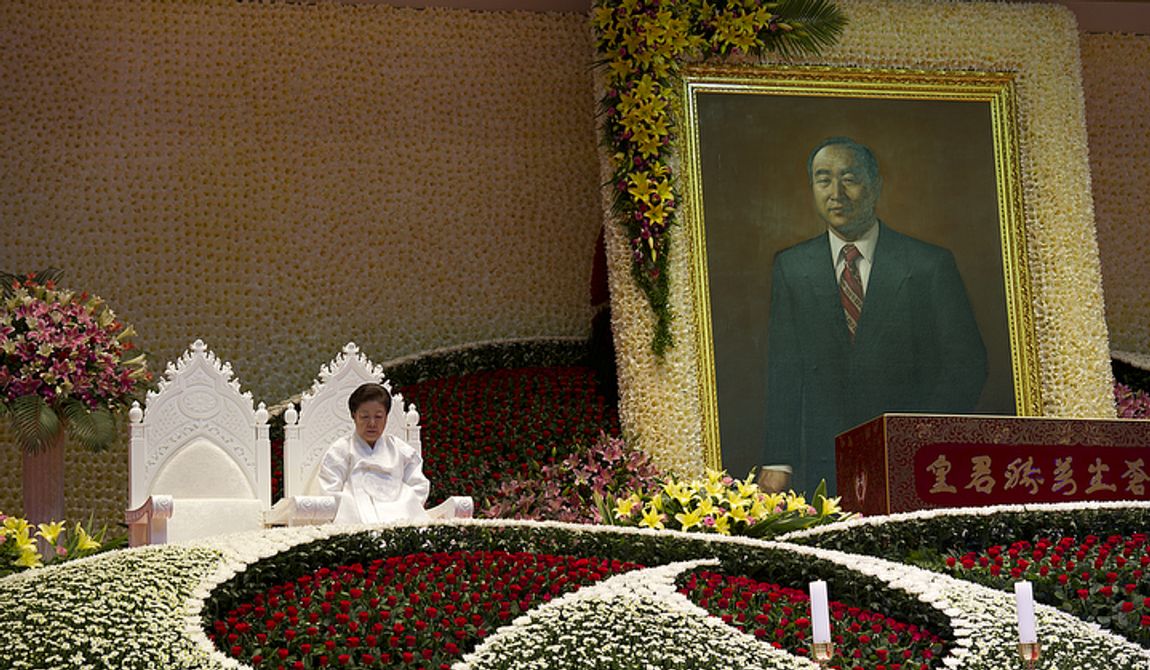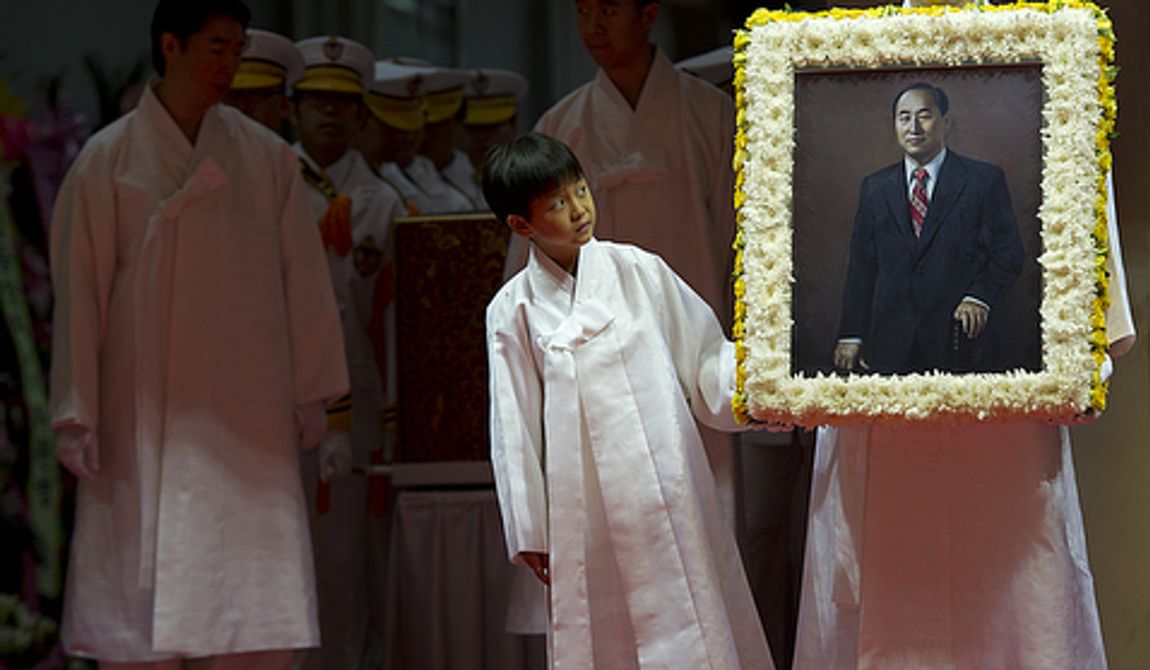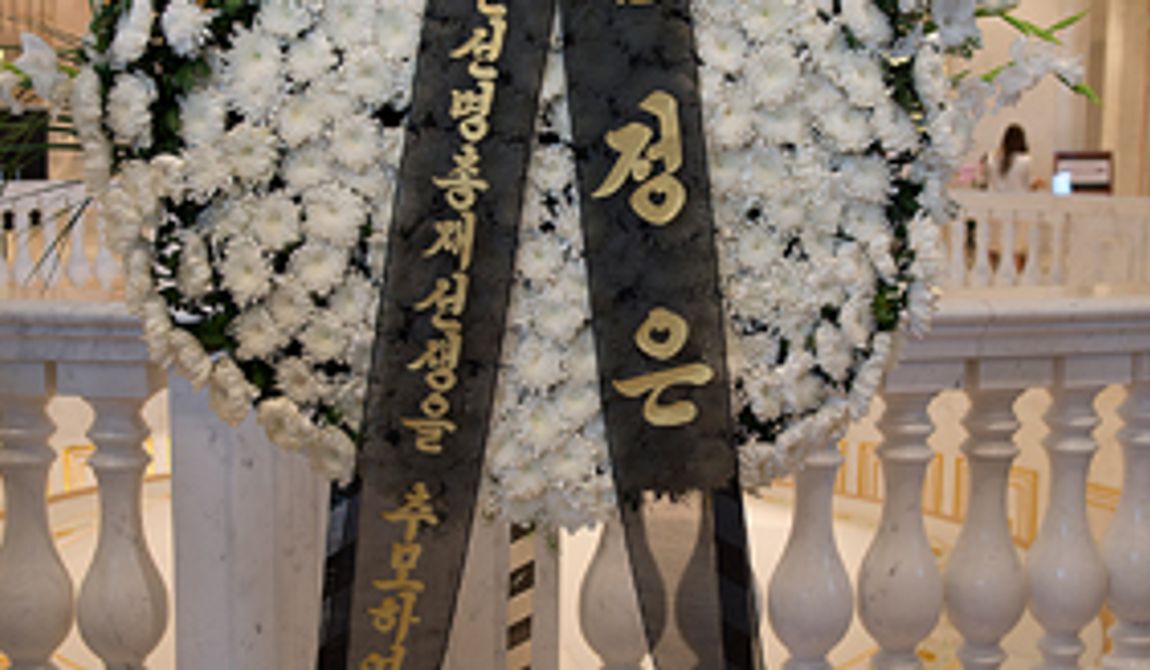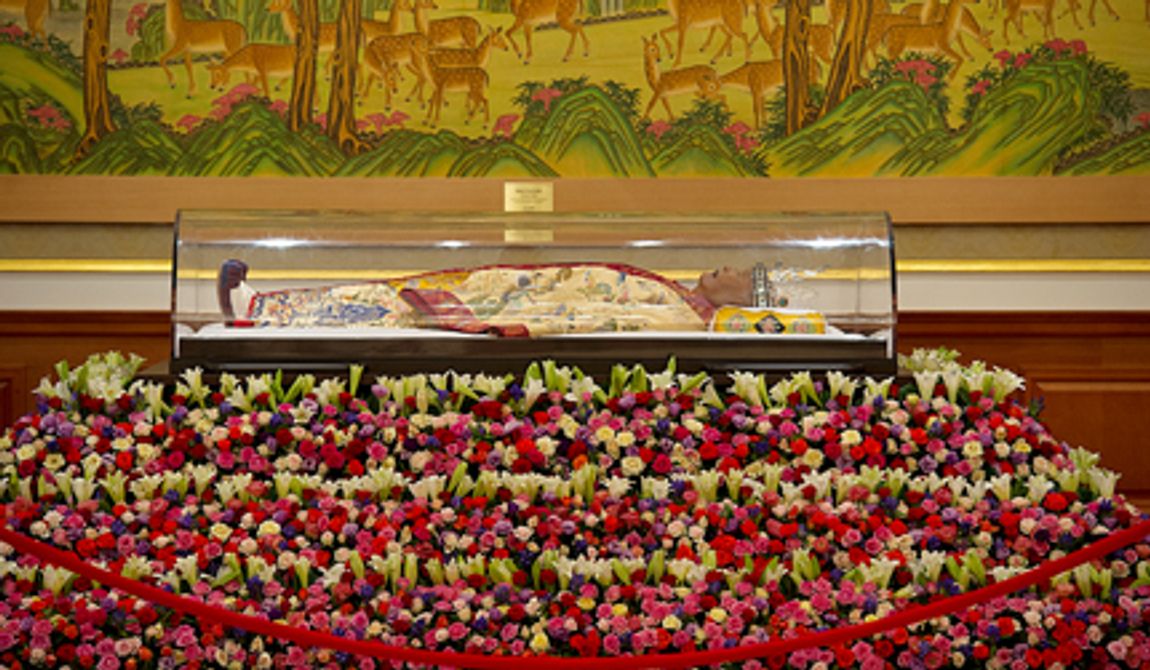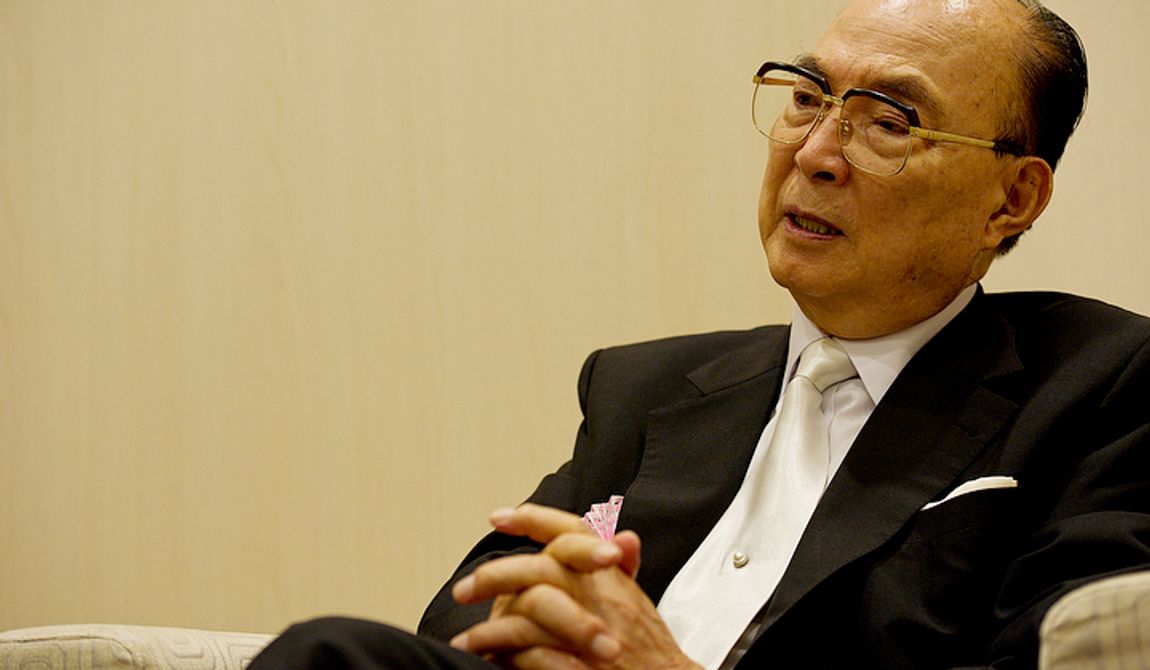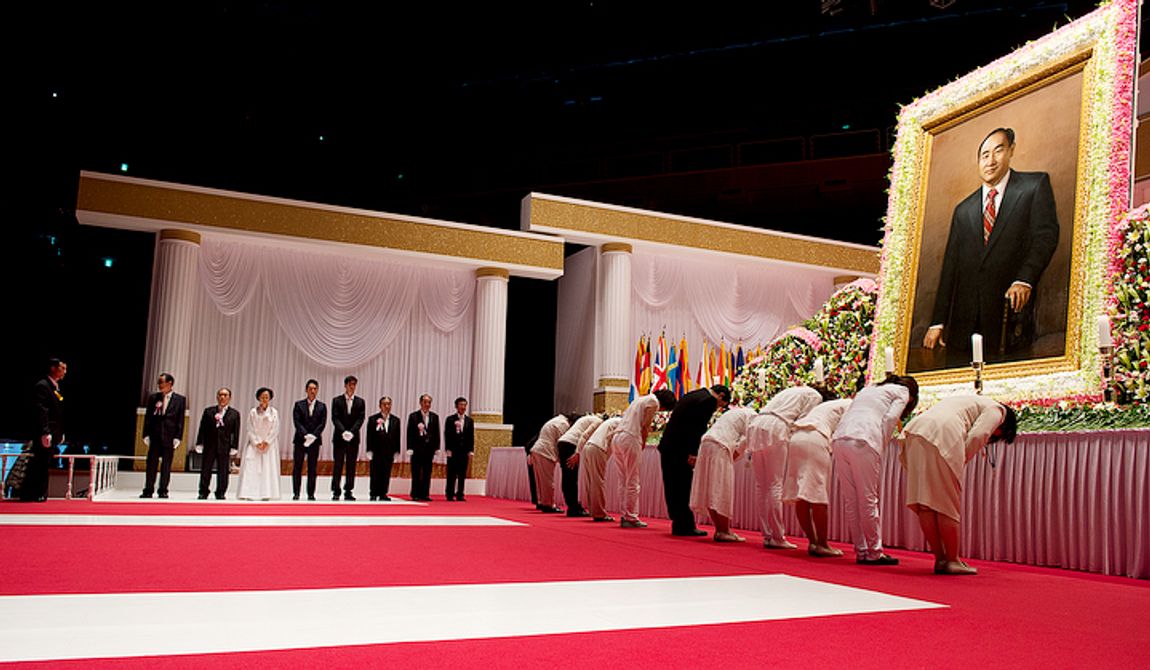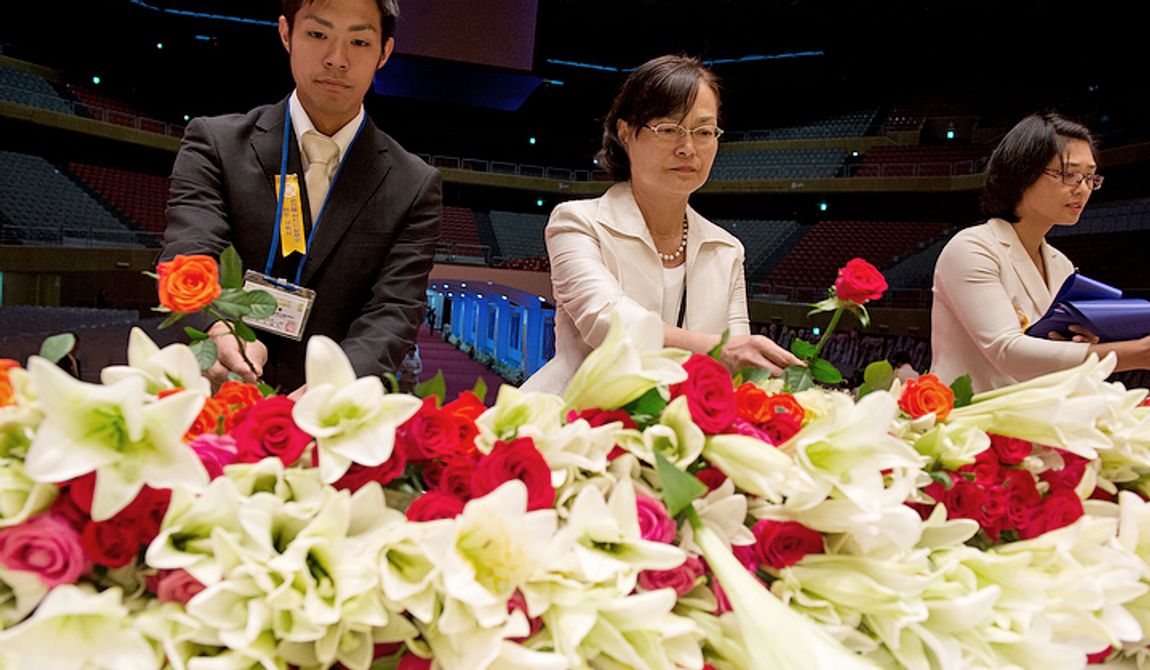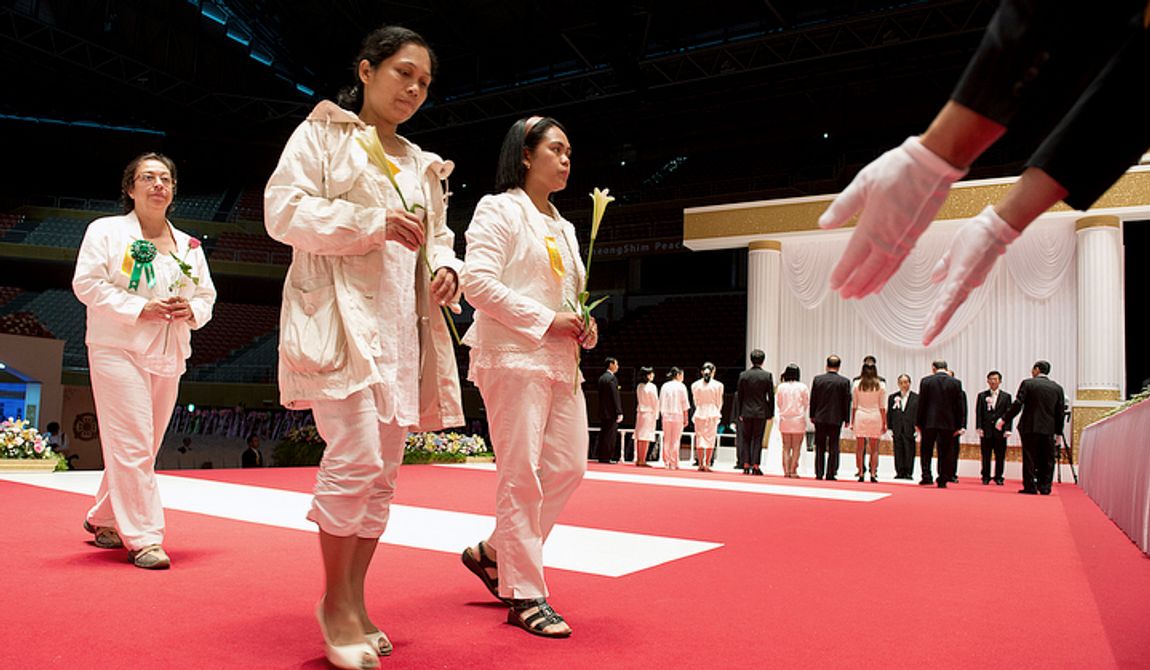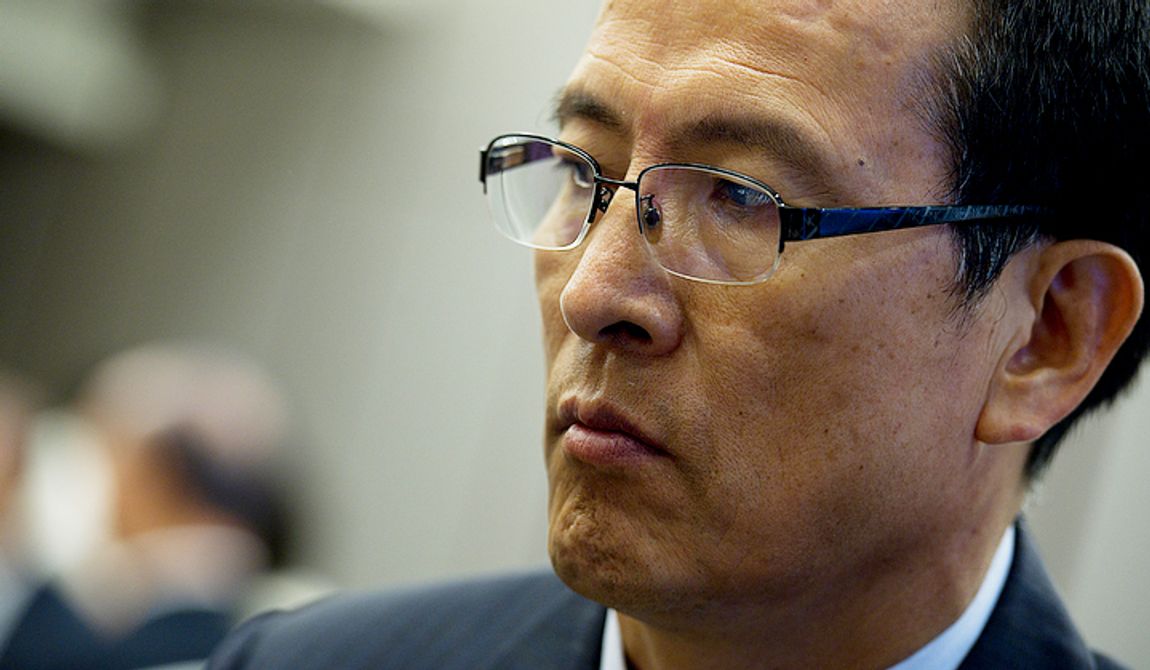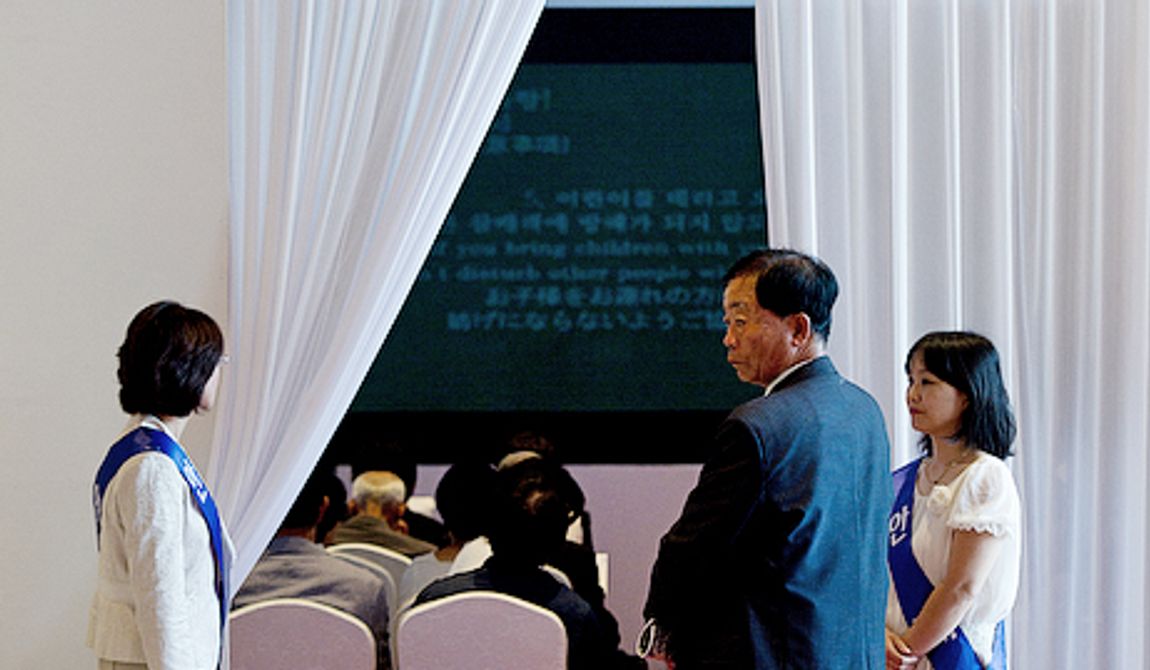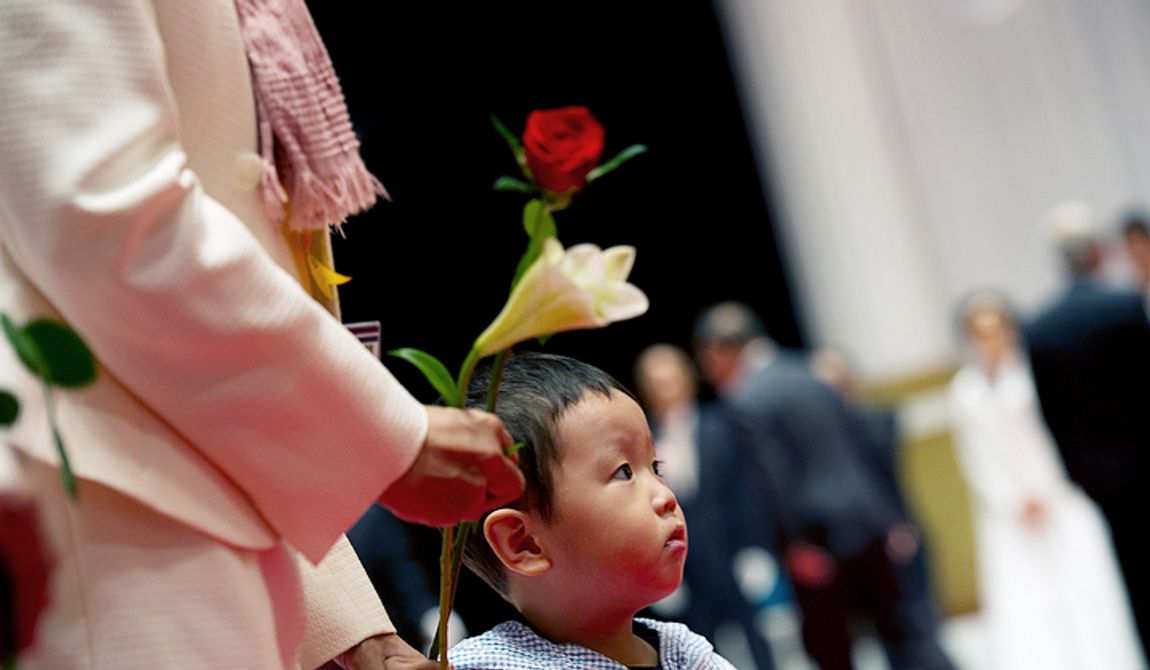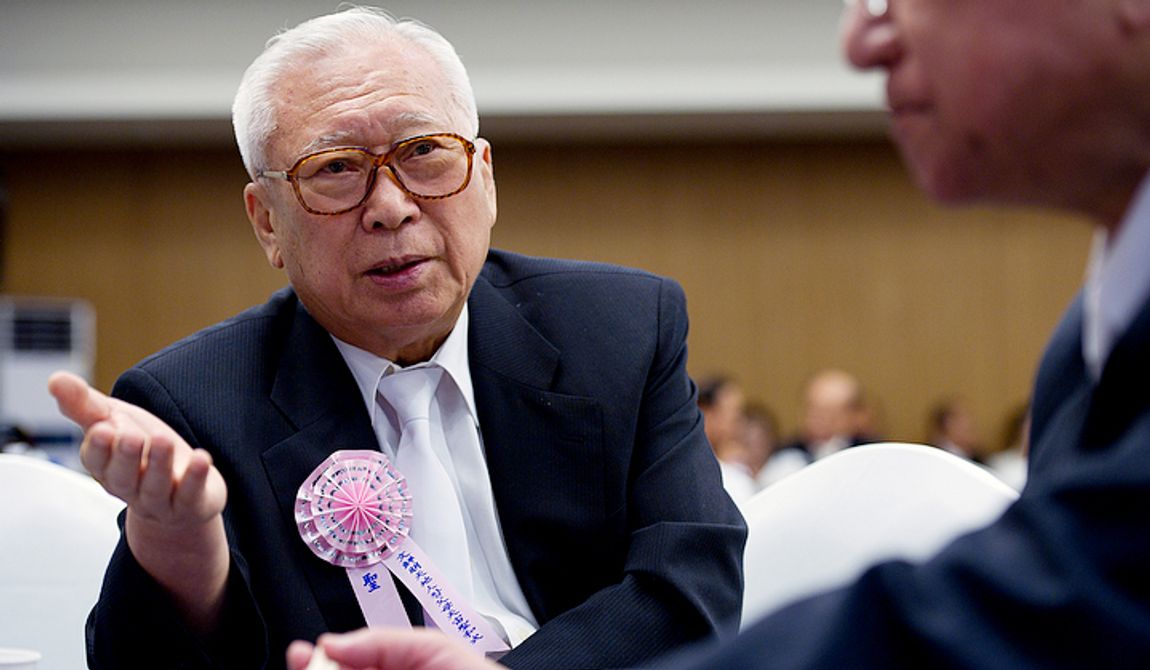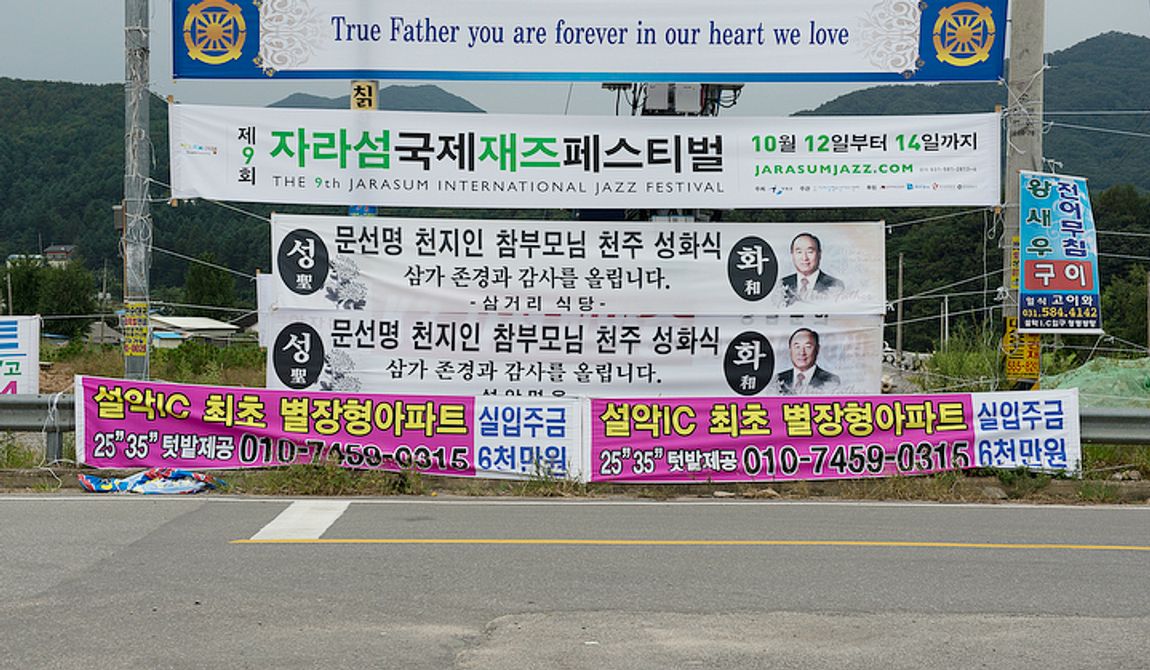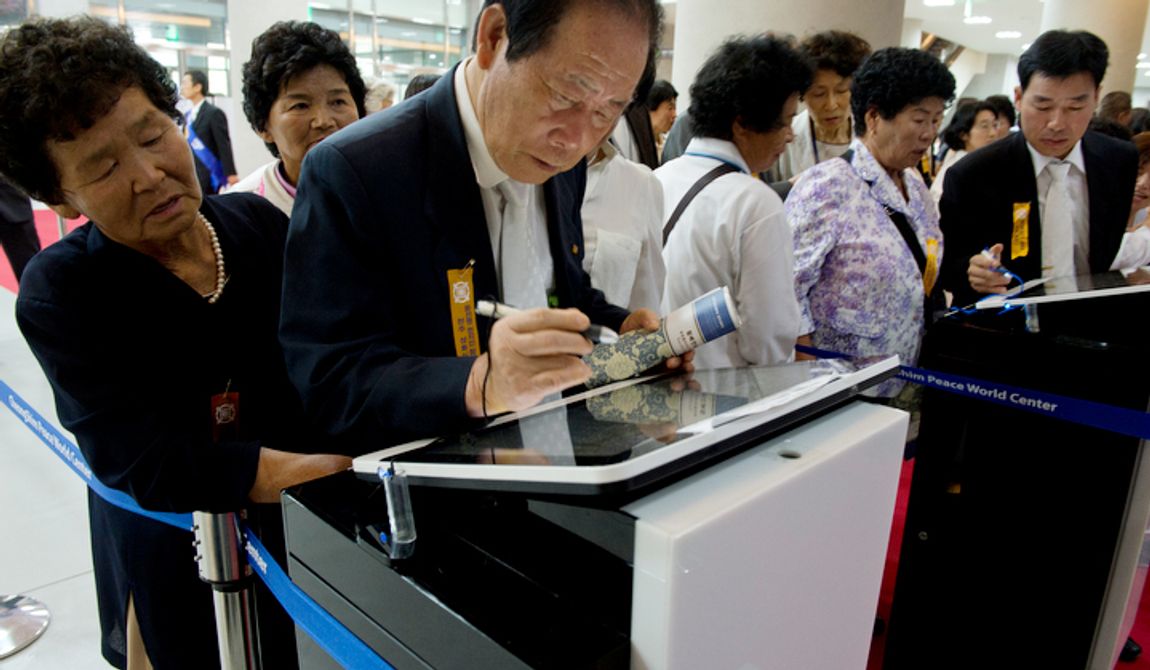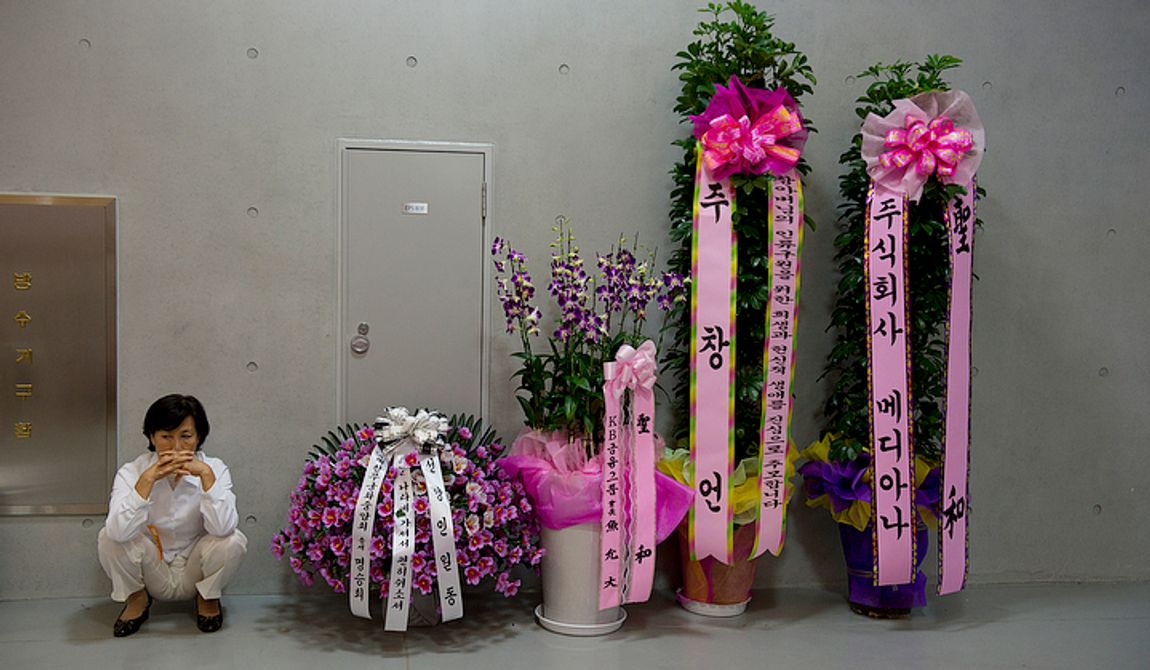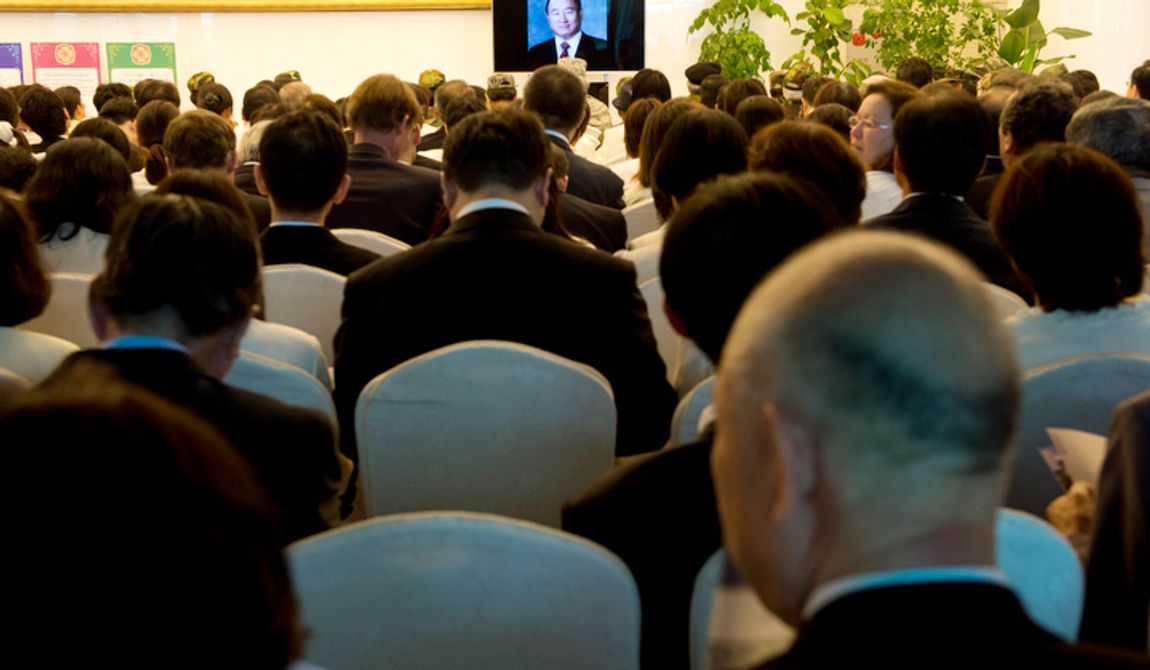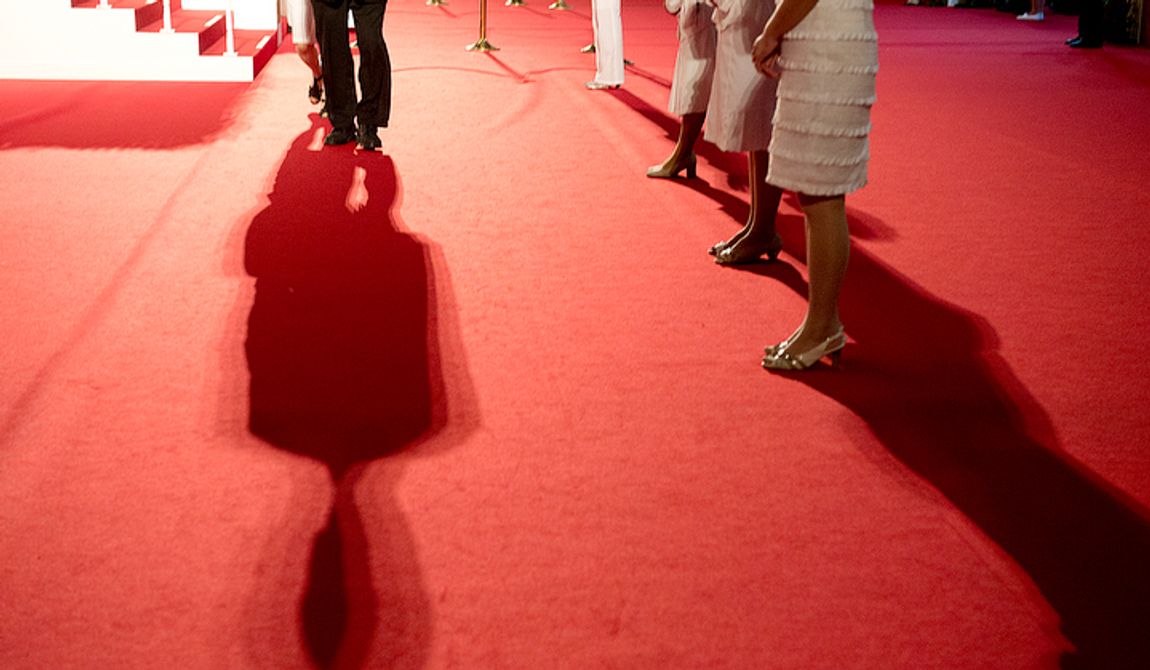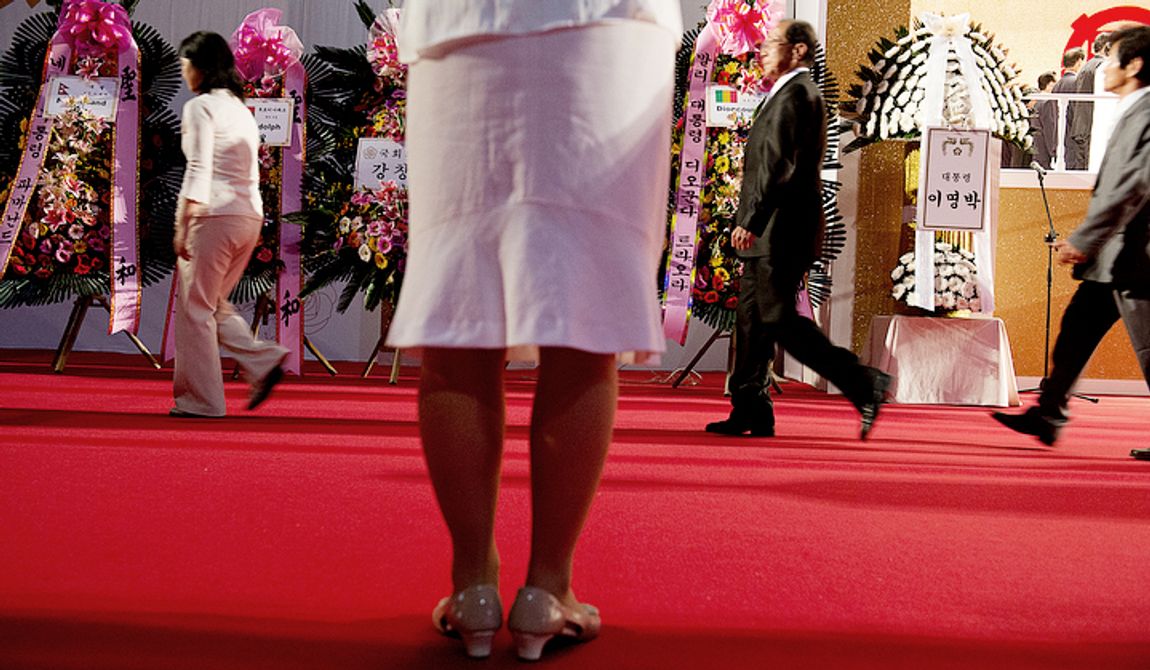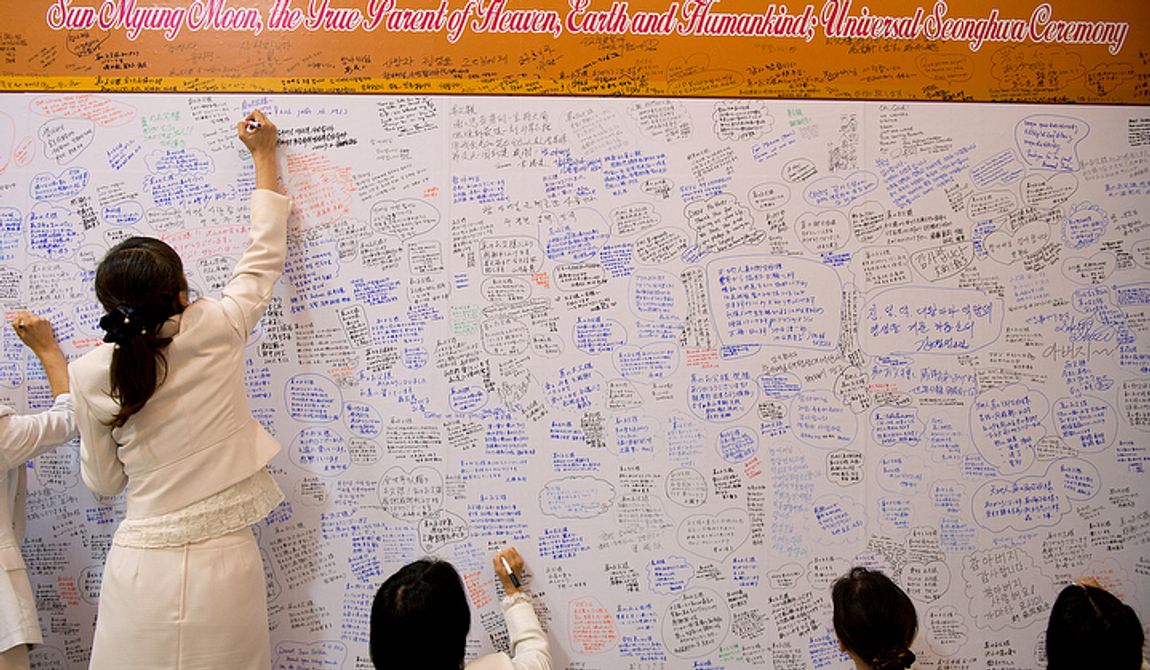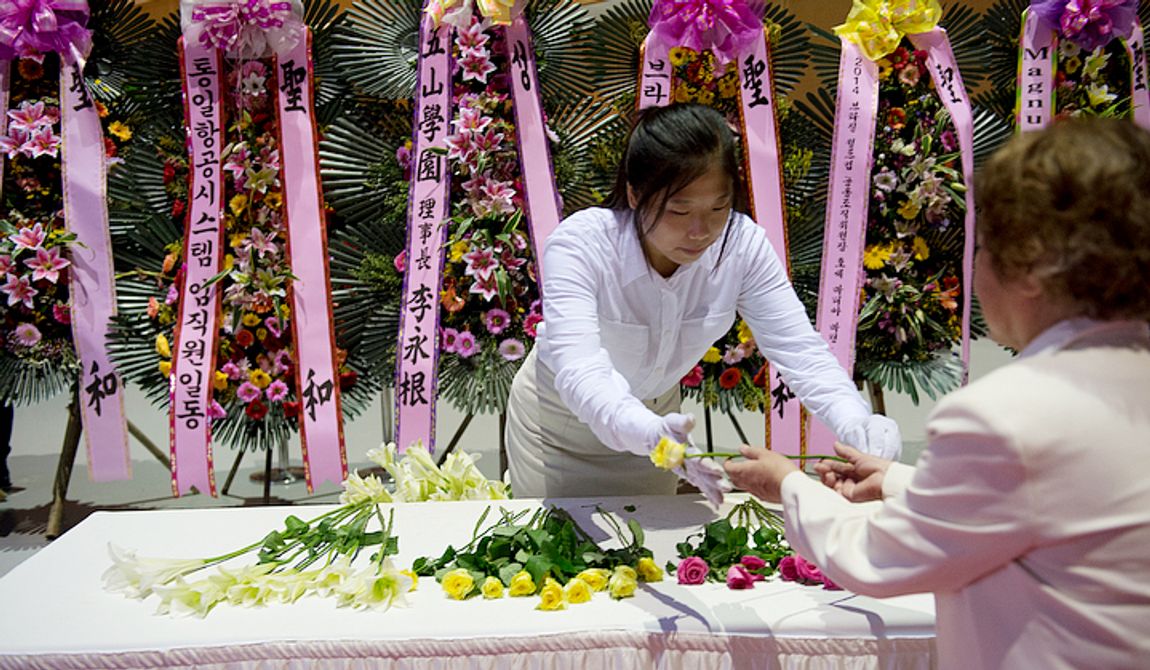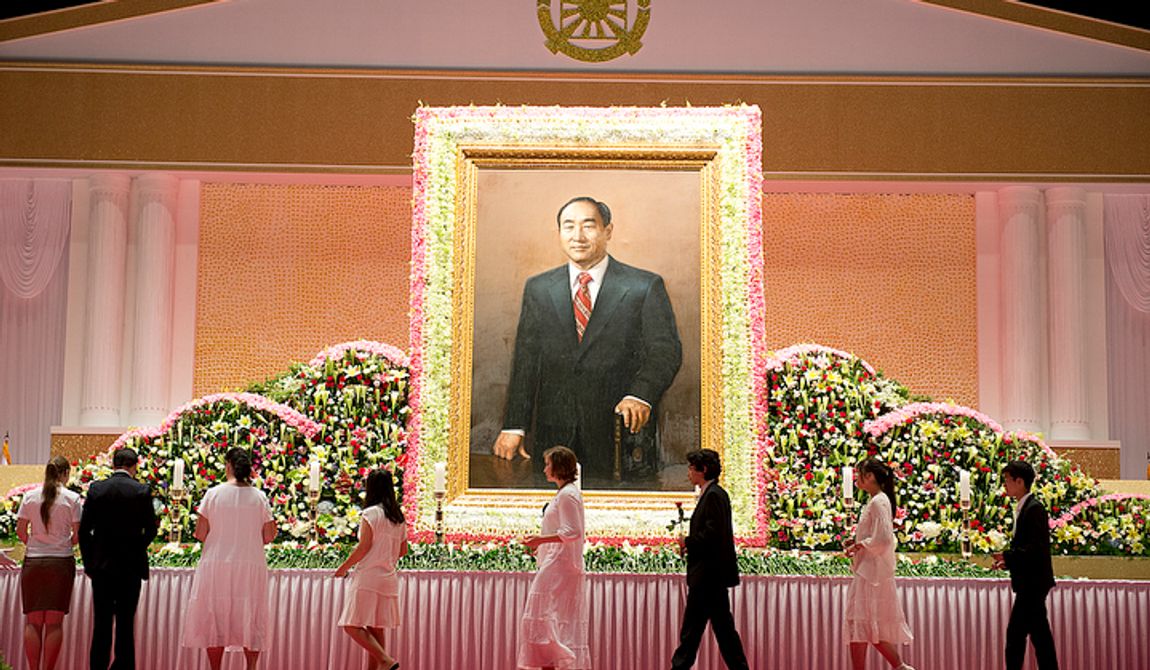GAPYEONG, South Korea — It’s just one floral tribute among hundreds here, but the stand of white paper chrysanthemums draped by a ribbon of Korean characters bears some unique political and diplomatic weight.
The wreath expresses the condolences of new young North Korean leader Kim Jong-un for the death of Unification Church founder and spiritual guide the Rev. Sun Myung Moon, who devoted much of his life and ministry to seeking an end to the long standoff that has divided the Korean Peninsula for more than 60 years.
In a culture that values both hierarchy and diplomatic nuance, the effusive welcome given the Rev. Hyung Jin Moon, the 33-year-old youngest son of Rev. Moon and his designated spiritual successor, on a visit to Pyongyang just days after his father’s death turned heads in both Seoul and Washington. The warm reception also sent a strong signal that the Unification Church’s pioneering business ventures in the North, including a car manufacturer and a resort hotel, will not only survive but also expand despite Rev. Moon’s passing.
Hyung Jin Moon and Park Sang-kwon, the Korean-American businessman who heads Pyeonghwa Motors, were received by Jang Song-thaek, the new North Korean leader’s influential uncle, who personally read out the message of condolence and bestowed an award on the senior Rev. Moon for his work to unify the two Koreas.
Mr. Park, in an interview at the church’s sprawling complex northeast of Seoul, confirmed that North Korean officials had extended an invitation for Han Hak Ja, Rev. Moon’s widow and the new head of his ministry, to visit Pyongyang — a trip Mr. Park said he hopes can take place in a year to 18 months.
The younger Mr. Moon also met with grieving relatives, including Rev. Moon’s younger sister, from his father’s native village in Jangju, North Pyongyang Province, North Korea. Hyung Jin Moon traveled to Pyongyang in December for the memorial services for North Korean leader Kim Jong-il, who had built a close relationship with the senior Rev. Moon over the years.
Mr. Park and other church officials interviewed ahead of Saturday’s official burial ceremony for Rev. Moon uniformly expressed confidence that the church’s unusual economic foothold in North Korea will continue to prosper even as the Unification Church deals with major internal succession issues.
“I really feel there will be no change in our situation,” Mr. Park said, “because North Korean officials are telling us they feel more strongly than ever, even though Rev. Moon has passed away, that we can make an ever stronger alliance.”
He said the church has been one of the few institutions that has been able to finesse the paralyzing dynamic of North-South relations, in which Seoul counts on its economic might and prosperity to prevail while Pyongyang relies on its military machine and nuclear arsenal to eventually seize the upper hand.
“Rev. Moon always told me not to think of money and profits in dealing with the North, but to think of how we can help them, with the idea that someday things will change,” Mr. Park said.
The profits, though modest, already have come — Mr. Park said the 10-year-old Pyeonghwa Motors turned its first profit three years ago and remains in the black, though its production run of fewer than 2,000 cars a year is dwarfed by South Korea’s other major automakers. But selling 2,000 cars annually in a desperately poor country like North Korea, with its rudimentary credit, sales and service infrastructure, is “like selling 200,000 cars a year in some Western markets,” Mr. Park said.
Ahn Ho-yeul, general manager of the Tongil Group and a spokesman for Hyung Jin Moon, confirmed that the church’s new generation of leaders is “committed to the same approach” that Rev. Moon developed in relations with North Korea.
Despite the reverend’s lifelong aversion to communism, Mr. Ahn said, the church’s commercial overtures to the North have thrived by pointedly ignoring the political dimensions of engagement.
“The Rev. Moon’s approach was always based on the logic of national unification, and did not try to include divisive economic or political issues. That was the reason both the North and the South allowed us to proceed,” he said.
Mr. Park confirmed to South Korean reporters after his return from Pyongyang last week that issues of inter-Korean relations were not even discussed during the trip.
Outside analysts say they have seen tentative early signs of an economic thaw under Kim Jong-un, including agriculture reforms and the establishment of more-liberal enterprise zones in partnership with neighboring China. But the North remains one of the most unpredictable and opaque markets for outsiders to penetrate.
Just this week, North Korean officials angrily rejected as insufficient offers of food and medical aid from the South after floods and typhoons caused extensive damage and loss of life during the summer.
The “negligible” amount of aid offered was intended as an “insult” to the North, an unidentified spokesman for the Central Committee of the Red Cross Society said in remarks broadcast Thursday by the North’s official Korean Central News Agency.
“This goes to clearly prove that the South Korean puppet group’s proposal to offer aid is nothing but a gesture to gain gratitude and save its face under public pressure,” the official said.
• David R. Sands can be reached at dsands@washingtontimes.com.



